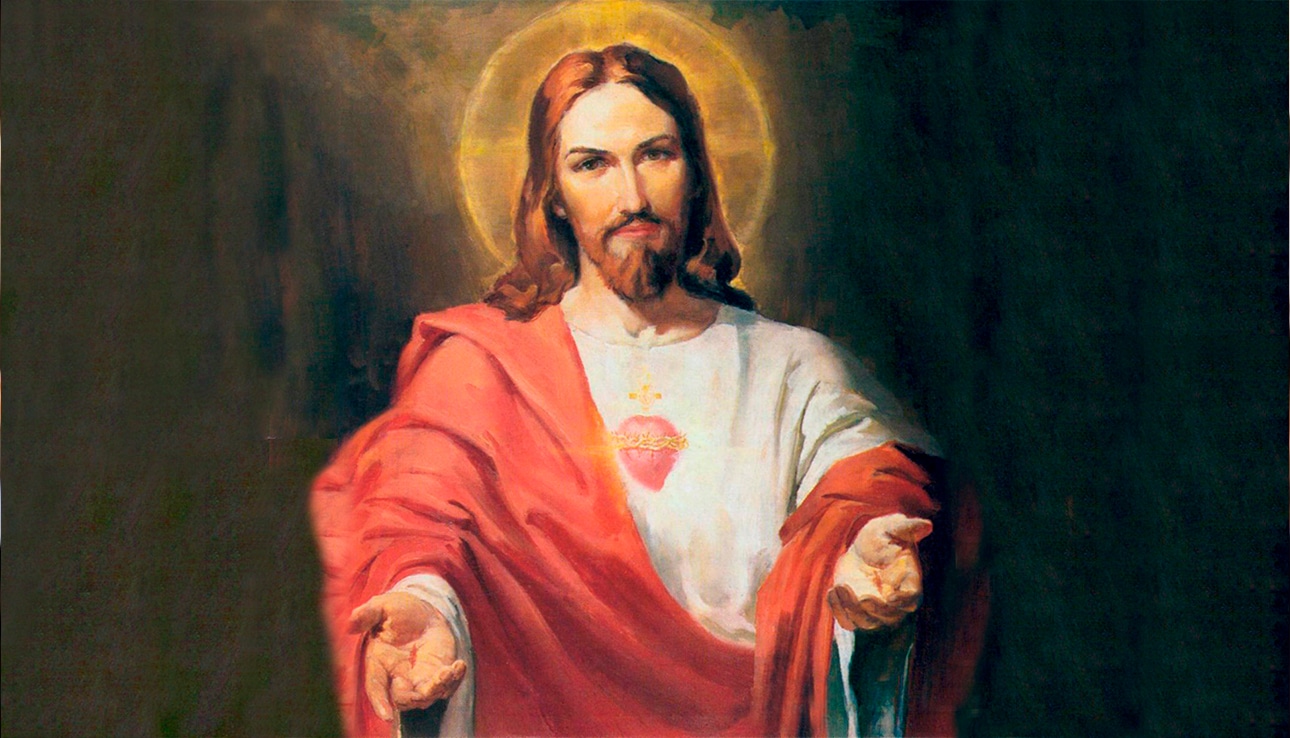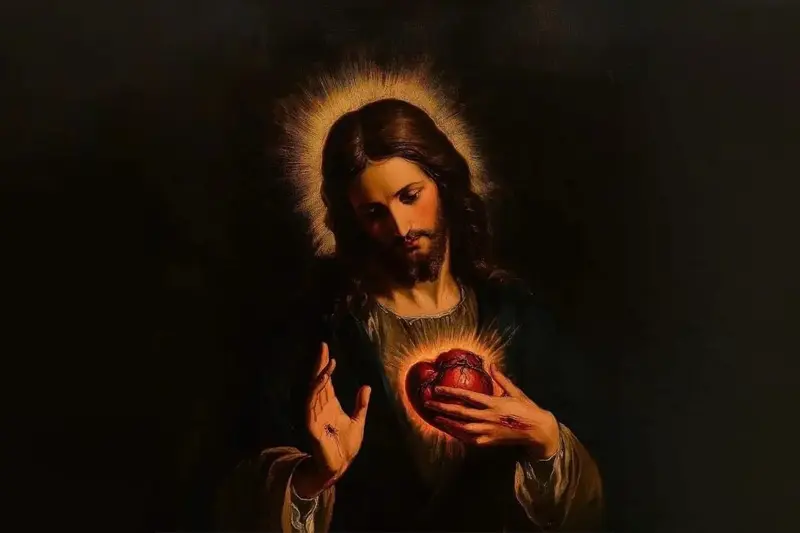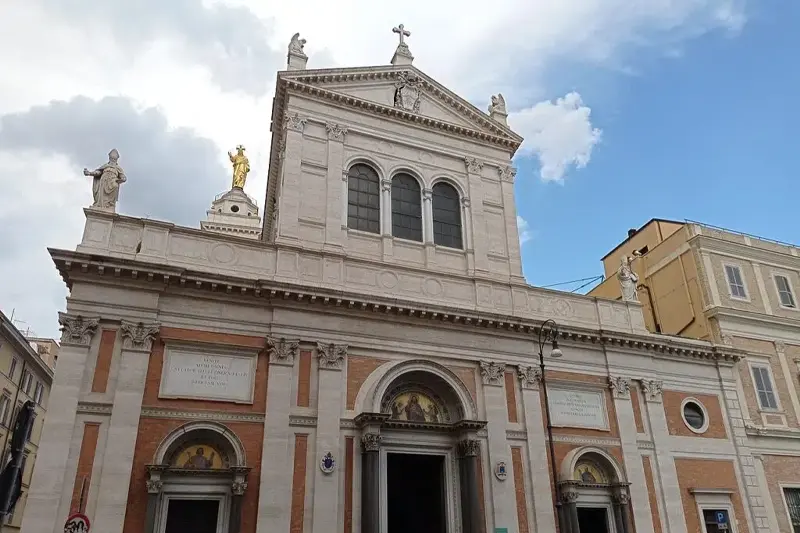
On the Feast of the Sacred Heart of Jesus we celebrate the liturgical solemnity of God's love: today is the feast of love, Pope Francis said a few years ago. And he adds "the Apostle John tells us what love is: not that we loved God, but that He loved us first. He waited for us with love. He is the first to love. St. John Paul II said that "this feast recalls the mystery of the Love that God harbors for men and women of all times".
The whole month of June is dedicated to the Sacred Heart of Jesus, although its feast day is after the octave of Corpus Christi. This 2025 is celebrated on Friday, June 27.
During the feast, St. Josemaría invites us to meditate on the Love of God: "They are thoughts, affections, conversations that souls in love have always dedicated to Jesus. But to understand this language, to really know what the human heart and the Heart of Christ are, we need faith and humility.
St. Josemaría emphasizes that as devotees we should keep in mind all the richness that is contained in these words: Sacred Heart of Jesus.
When we speak of human heart we do not refer only to feelings, we allude to the whole person who loves, who loves and treats others. A man is worth what his heart is worth, we can say.
The Bible speaks of the heart, referring to the person who, as Jesus Christ himself said, directs all of himself - soul and body - to what he considers to be his good. "For where your treasure is, there your heart will be also" (
In speaking of devotion to the Heart, St. Josemaría shows the certainty of God's love and the truth of his self-giving to us. In recommending devotion to the Sacred Heart of Jesus, he recommends that we direct ourselves entirely-with all that we are: our soul, our feelings, our thoughts, our words and our actions, our labors and our joys-to the whole of Jesus.
This is what true devotion to the Heart of Jesus is all about: knowing God and knowing ourselves, and looking to Jesus and turning to Him, who encourages us, teaches us, guides us. There is no room for more superficiality in devotion than that of a man who, not being fully human, does not succeed in perceiving the reality of God incarnate. Without forgetting that the Sacred Heart of Mary is always at his side.

The image of the Sacred Heart of Jesus reminds us of the central core of our faith: how much God loves us with his Heart and how much we, therefore, must love him. Jesus loves us so much that he suffers when his immense love is not reciprocated.
Pope Francis tells us that the Sacred Heart of Jesus invites us to learn "from the Lord who has made himself food, so that each one can be even more available to others, serving all those in need, especially the poorest families".
May the Sacred Heart of Our Lord Jesus Christ, which we celebrate, help us to keep our hearts full of merciful love for all those who suffer. Therefore, let us ask for a heart:
We can demonstrate our love by our works; this is precisely what devotion to the Sacred Heart of Jesus is all about.
On this feast, we Christians must resolve to strive to do good. There is much to be done to ensure that our earthly coexistence is inspired by love.
Even so, the pain will not disappear. In the face of these sorrows, we Christians have an authentic response, a response that is definitive: Christ on the Cross, God who suffers and dies, God who gives us his Heart, who opened a lance for love of all.
Our Lord abhors injustice, and condemns the one who commits it. But, as he respects the freedom of each individual, he allows them to exist.
His Heart full of Love for mankind made Him take upon Himself, with the Cross, all these tortures: our suffering, our sadness, our anguish, our hunger and thirst for justice. To live in the Heart of Jesus is to unite ourselves closely to Christ; it is to become God's dwelling place.
"He who loves me will be loved by my Father, our Lord announced to us. And Christ and the Father, in the Holy Spirit, come to the soul and make their dwelling in it," St. Josemaría.
Men, their lives and their happiness are so valuable that the Son of God Himself gives Himself to redeem them, to cleanse us, to elevate us. Who will not love his heart so wounded? asked a contemplative soul. And he would go on asking: who will not return love for love, who will not embrace a heart so pure," St. Josemaría Escrivá added.

It was an explicit request of Jesus, who on June 16, 1675, appeared to her and showed his Heart to her. St. Margaret Mary Alacoque. Jesus appeared to her on several occasions and told her how much He loved her and all men and how much it grieved His Heart that men were turning away from Him because of sin.
During these visits, Jesus asked St. Margaret to teach us to love Him more, to have devotion to Him, to pray and, above all, to behave well so that His Heart would no longer suffer from our sins.
Later, St. Margaret with her spiritual director would spread the messages of the Sacred Heart of Jesus. In 1899, Pope Leo XIII published the encyclical Annum Sacrum on the consecration of the human race, which took place in the same year.
During his pontificate, St. John Paul II established that on this feast the World Day of Prayer for the sanctification of priests should also be celebrated. Many groups, movements, orders and religious congregations, since ancient times, have placed themselves under his protection.
Rome is home to the Basilica of the Sacro Cuore (Sacred Heart) built by St. John Bosco at the request of Pope Leo XIII and with donations from the faithful and devotees from various countries.
How to pray to the Sacred Heart of Jesus? We can get a prayer card or a picture of the Sacred Heart of Jesus and, before it, perform the family consecration to his Sacred Heart, in the following way:
Written by St. Mary of Alacoque:
"I, (say here your name), give and consecrate myself to the Sacred Heart of Our Lord Jesus Christ, my person and my life, my prayers, sorrows and sufferings, so as not to want to serve myself from any part of my being, but to honor, love and glorify Him. It is my irrevocable will to be all of Him and to do everything for His love, renouncing wholeheartedly all that could displease Him.
I take you, therefore, O Sacred Heart, for the only object of my love, the protector of my life, the security of my salvation, the remedy for my frailty and my inconstancy, the repairer of all the defects of my life, and my asylum at the hour of my death.
Bibliography
It is Christ who passesSt. Josemaría Escrivá.
ConfessionsSt. Augustine.
Letter, October 5, 1986, to Fr. R. P. Kolvenbach, M. R. KolvenbachSt. John Paul II.
Opusdei.org
Vaticannews.va